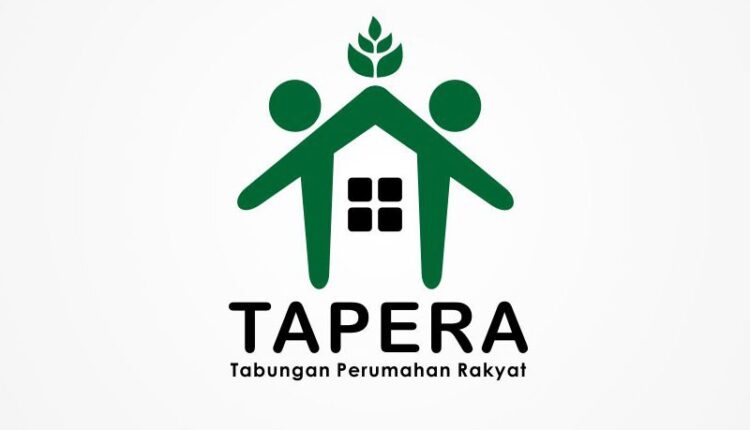Tapera Able to Balance Increase in Housing Sector Inflation
By: Dhita Karuniawati )*
The government stipulated Government Regulation (PP) 21 of 2024 concerning the Implementation of Public Housing Savings (Tapera) on 20 May 2024. This policy aims to help people have decent and affordable housing. Significantly increasing inflation has affected various aspects of the economy, including the housing sector. Rising prices of building materials, labor wages, and other operational costs have led to a spike in housing construction costs. Through Tapera, the government is trying to ensure that people are able to offset rising inflation, especially in the housing sector.
Presidential Chief of Staff Moeldoko explained the government’s reasons for launching Public Housing Savings (Tapera). One of them is due to salary increases with an unbalanced inflation rate. Moeldoko said the government thought hard to understand that the number of salary increases and the inflation rate in the housing sector were not balanced. As a result of this condition, there are around 9.9 million Indonesians who do not currently own a house.
Tapera is also part of the constitutional mandate that must be carried out by the president. Therefore, the government must think hard about being able to meet one of the community’s needs, apart from clothing and food. Tapera relates to boards. That is the duty of the constitution, because there are laws. There are two laws (UU) which are the basis for the formation of Tapera. First, Law Number 1 of 2011 concerning Housing and Settlement Areas and Law Number 4 of 2016 concerning Public Housing Savings. Tapera is an extension of Bapertarum. Previously specifically for ASN, now it is extended to independent workers and also the private sector.
The Housing Savings Advisory Board (Bapertarum) was officially disbanded in 2018, changing its name to the Public Housing Savings Management Agency (BP Tapera). The target of participants, which was originally only civil servants, has now been expanded to private employees and independent workers. Because, there is a backlog problem currently facing the government. The Public Housing Savings Management Agency (BP Tapera) is ready to provide education in stages regarding the percentage amount in Public Housing Savings (Tapera).
BP Tapera Commissioner, Heru Pudjo Nugroho said that there are still misunderstandings among most people, it is not that simple, and must be straightened out. The government’s role in housing finance comes by reducing the value of monthly installments with a flat interest rate of 5 percent until they are paid off while getting the benefit of returning the principal of the participant’s savings along with the returns received.
The Tapera policy received a positive response from University of Indonesia (UI) economic observer Fithra Faisal. He said that PP Number 21 of 2024 concerning Amendments to PP Number 25 of 2020 concerning Tapera is a solution to the problem of people who do not have homes. Tapera will be a solution to the gap problem between people who do not have permanent housing because they have limited income or income. It will indeed force people a little with a contribution system to make it easier for them to get a house. Because in the end this contribution also takes the form of a cross subsidy. The Tapera regulations are considered capable of producing a double impact on the economy which includes job creation, use of production inputs, thereby contributing to economic growth as well.
Close collaboration between the government, private sector and society is very necessary to overcome Tapera’s challenges. The government continues to strive to provide certainty in policies and regulations that support the implementation of Tapera, as well as providing adequate incentives and financial support. On the other hand, the private sector needs to be actively involved in providing affordable and quality housing, by utilizing the latest technology and innovation.
The community also needs to actively participate in the Tapera program and apply the principles of good financial management. Education and financial literacy are the keys to helping people understand the benefits and mechanisms of Tapera, as well as managing their savings effectively.
The government is considering long-term strategies to maintain price stability and control inflation. Appropriate monetary and fiscal policies, as well as efforts to increase productivity and economic competitiveness, can help keep inflation at a controlled level.
In facing the challenges of implementing Tapera amidst increasing inflation, close cooperation and coordination between all stakeholders is the main key. With coordinated efforts and a comprehensive strategy, the Tapera program can be realized effectively and provide real benefits for the Indonesian people in having decent and affordable housing.
The government ensures that the community’s Tapera savings funds will be managed well. The Ministry of Finance together with the Financial Services Authority (OJK) will continue to supervise the management of Tapera funds. For this reason, people do not need to worry that Tapera will harm the people, it is actually very profitable and guarantees a prosperous life in the future.
*) The author is a contributor to the Indonesian Strategic Information Study Institute
